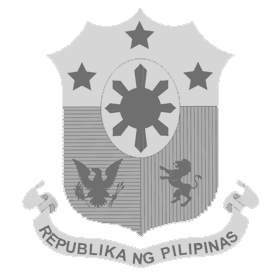
The road towards mutually inclusive growth: DSWD’s Sustainable Livelihood Program
By: Social Marketing
The rally to work towards mutually inclusive sustainable growth continues as the Department of Social Welfare and Development (DSWD) underscores how strategic partnerships between businesses and underprivileged communities promote mutually inclusive growth through its Sustainable Livelihood Program (SLP).Today, November 28, through a national public forum entitled “Bangon Kabuhayan: Philippine Businesses for Inclusive Growth through Harnessing Sustainable Livelihoods”, DSWD will seek to put the spotlight on the goals, opportunities, and practices between SLP and its partners.
SLP began in 2011 and it designs its projects to mainly increase the communities’ sense of dignity, yield long-term results for all actively participating stakeholders, and maintain consistence with both communities and partner establishments. SLP, however, prioritizes participants who are underprivileged, which are legitimately identified by the National Household Targeting System for Poverty Reduction (NHTS-PR).
According to DSWD Secretary Corazon Juliano-Soliman, the main objectives of SLP are providing sufficient and sustainable source of income, giving equal opportunity to gain resources for their needs and skills, and to help people recognize and understand the “new normal”.
“Given that DSWD’s pledge at large is geared towards providing capabilities-building and developing strategic and sustainable partnerships, we recognized that there is a need to educate people how times have changed nowadays,” says Secretary Soliman.
“Natural disasters come and go—that’s the new normal. Therefore, we need to be resilient, pro-active, and of course, resourceful to gain back our footing,” she adds.
SLP Director Georgina Ann Hernandez likewise shares that cash assistance, cash grant, and rehabilitation assistance are given to those who will be affected by disasters.
Just last year, when Typhoon Yolanda struck, SLP and its partners worked on assisting the families who were affected by the disaster.
Because of its commitment to seeding sustainable prosperity, SLP trains the communities to contribute to production and labor markets by utilizing available resources and accessible market. Through the Community-Driven Enterprise Development (CDED) approach, they are given the option to take either a Micro-Enterprise Development Track or an Employment Facilitation Track. Both programs also provide social preparedness, furthered skills training, and ultimately, sustainable sources of income.
“The income-generating programs inside SLP are designed to create products that consumers have a natural or constant demand for. We also make sure that the communities are independent enough and the corporate social integration programs are holistic and impactful,”
Dir. Hernandez explains. She adds that these programs wouldn’t be holistic without partnering with different institutions.
“That’s why we tap other institutions to help us make integrated training programs from a different point of view. This can help enhance the skills of the communities, to expand their opportunities, and to teach them trust their own capabilities,” she says.
Seeding economic prosperity is a major facet in all these efforts. But given a closer look, what SLP really does is it hones individuals to be independent, proud of what they do, and it believes their actions benefit the community at large. This applies not only to the adopted communities, but also to the different internal and external stakeholders that took part in the program and know they have made a sustainable contribution to the society.
